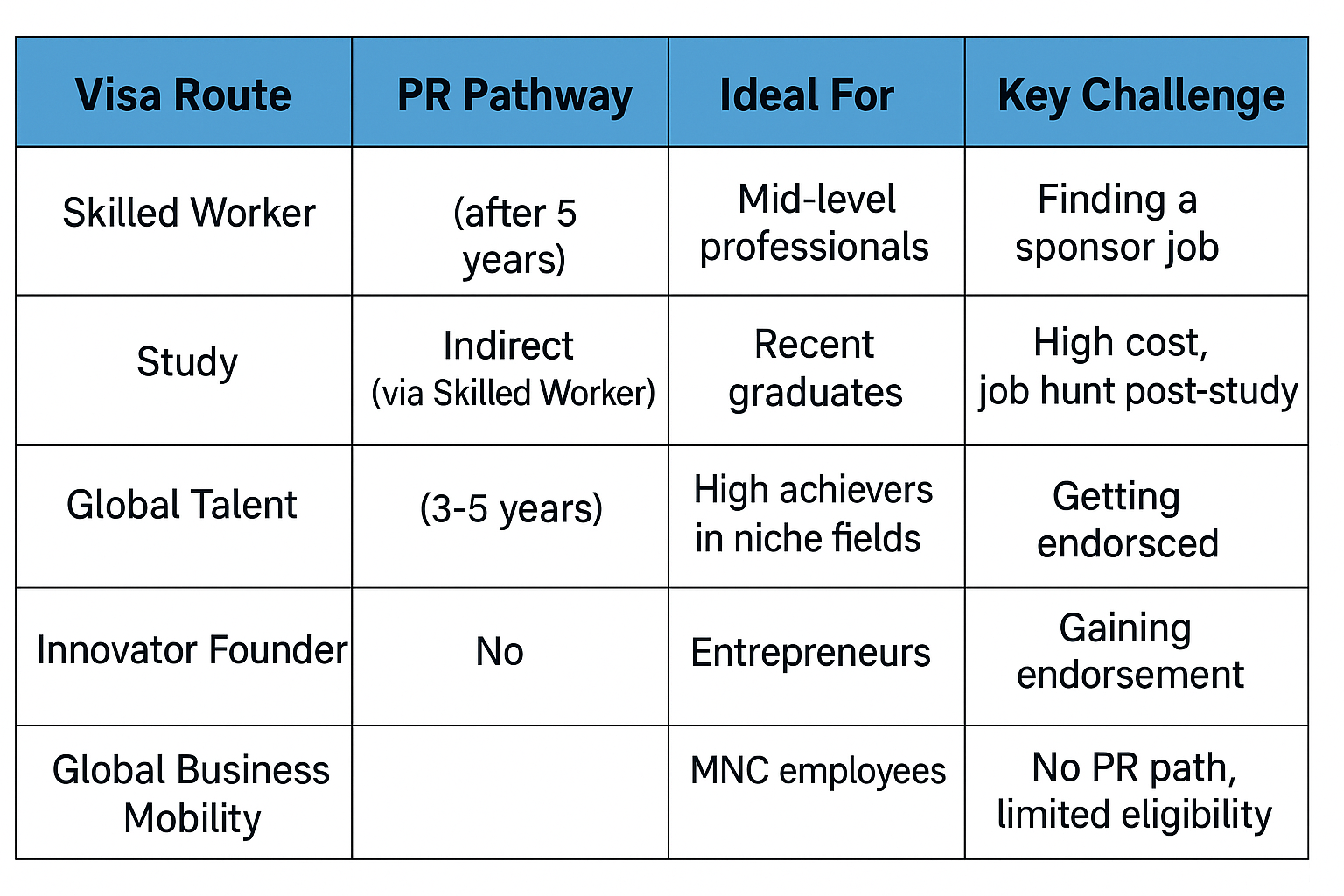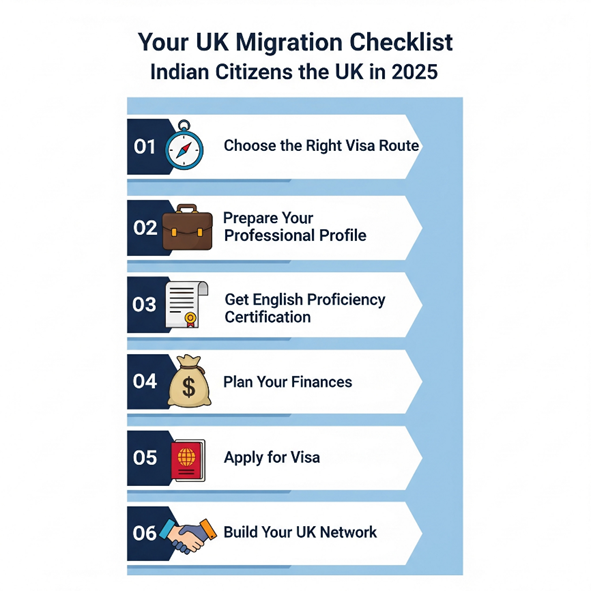There are no items in your cart
Add More
Add More
| Item Details | Price | ||
|---|---|---|---|
Are you an Indian professional dreaming of building your life and career in the UK? You’re not alone. The United Kingdom continues to be a top destination for skilled migrants due to its dynamic economy, multicultural society, world-class healthcare and education, and well-structured immigration pathways. If you're looking to make the UK your home, it’s time to plan smartly and act strategically. This blog outlines a detailed roadmap for Indian citizens aiming to migrate to the UK in 2025 and beyond. Whether you are a recent graduate, mid-career professional, entrepreneur, or someone considering higher studies abroad, this guide provides clarity on pathways, preparation, and long-term settlement goals.

Step 1: Understand Your Long-Term Goal
Your end goal may be to settle in the UK as a permanent resident or even a British citizen. To get there, you’ll typically go through three phases:
Knowing this framework helps you choose the best migration path based on your personal, professional, and financial circumstances.
Step 2: Choose the Right Immigration Pathway
The UK offers several immigration routes. Here are the most popular and practical ones for Indian professionals:
i. Skilled Worker Visa
This is the most common route for Indian professionals.
Eligibility:
Pros:
Resources:
Common Difficulties:
ii. Study in the UK and Use the Graduate Route
Studying in the UK is an effective immigration strategy, especially for those early in their careers.
How it works:
Pros:
Resources:
Common Difficulties:
iii. Global Talent Visa
Ideal for high achievers in fields such as tech, science, research, or arts.
Eligibility:
Pros:
Resources:
Common Difficulties:
iv. Innovator Founder Visa
For aspiring entrepreneurs with innovative business ideas.
Eligibility:
Resources:
Common Difficulties:
V. Expansion Worker Visa or Global Business Mobility
If you work for a multinational company in India with offices in the UK, consider an internal transfer.
Pros:
Resources:
Common Difficulties:

Step 3: Prepare for Eligibility Requirements
To ensure you're a strong candidate for migration, start preparing in the following areas:
Professional Readiness
Education and Certification
Language Proficiency
Step 4: Build Financial and Legal Readiness

Step 5: Leverage Career Strategies That Aid Migration
Step 6: Plan for Settlement and Citizenship
Once you’re in the UK on a long-term visa, understand the conditions to stay permanently:
Final Thoughts
Migrating to the UK from India is not just a paperwork exercise – it is a deeply personal journey filled with both challenges and aspirations. Indian professionals often encounter many hurdles and the processes can be bureaucratic, the timelines uncertain, and the visa policies prone to change.
But here's the truth: none of these challenges are insurmountable.
Every year, thousands of Indians successfully transition to the UK – whether through study, skilled employment, entrepreneurship, or talent recognition. What makes the difference is early planning, strategic action, and persistence. If you prepare intentionally, invest in the right skills, build a strong international profile, and stay informed, the UK can indeed become your new home.
Let the UK be not just a dream, but a destination you actively and confidently pursue.


Amol Chaudhari
Amol is a biomedical scientist with experience in translational research. He has a keen interest in business strategy development.